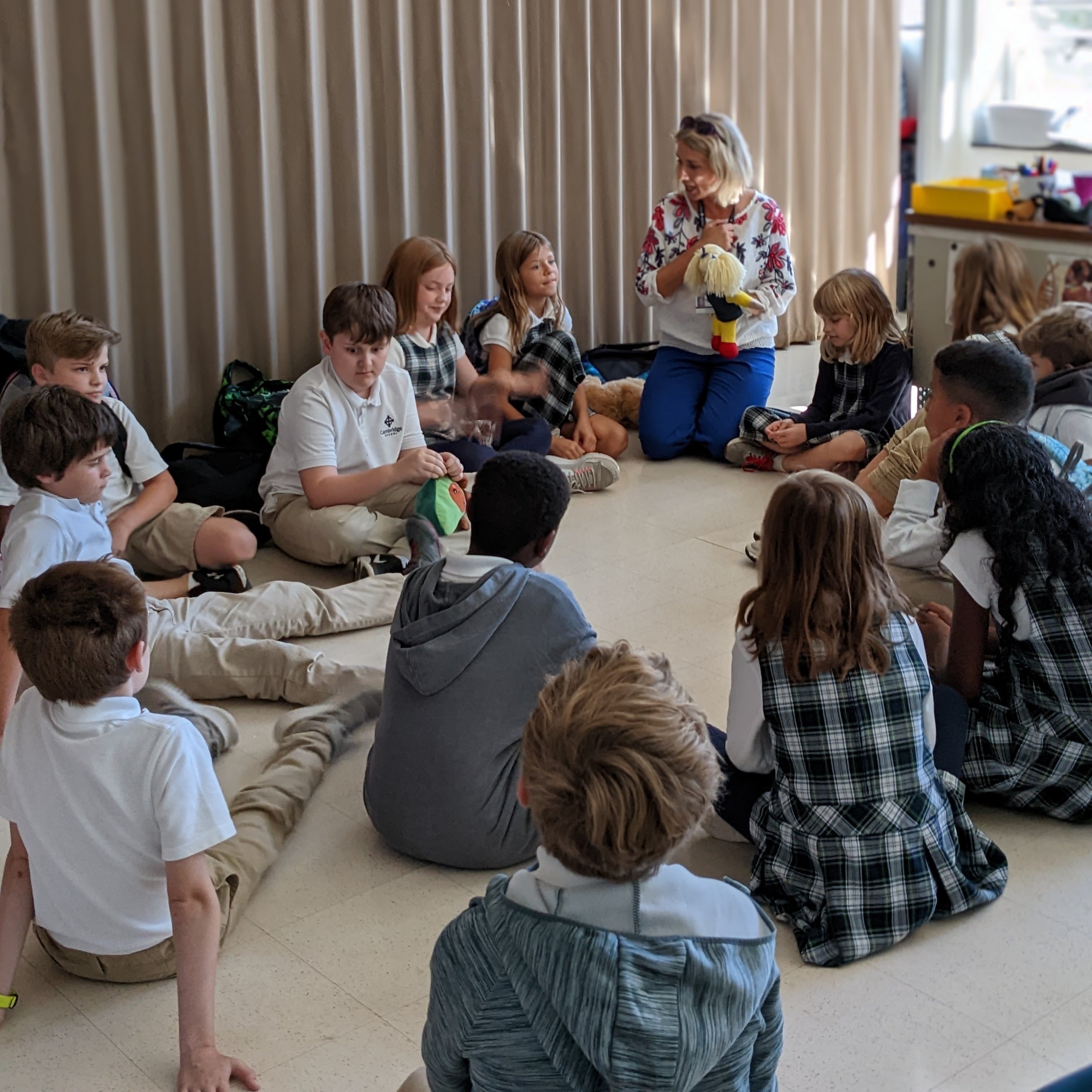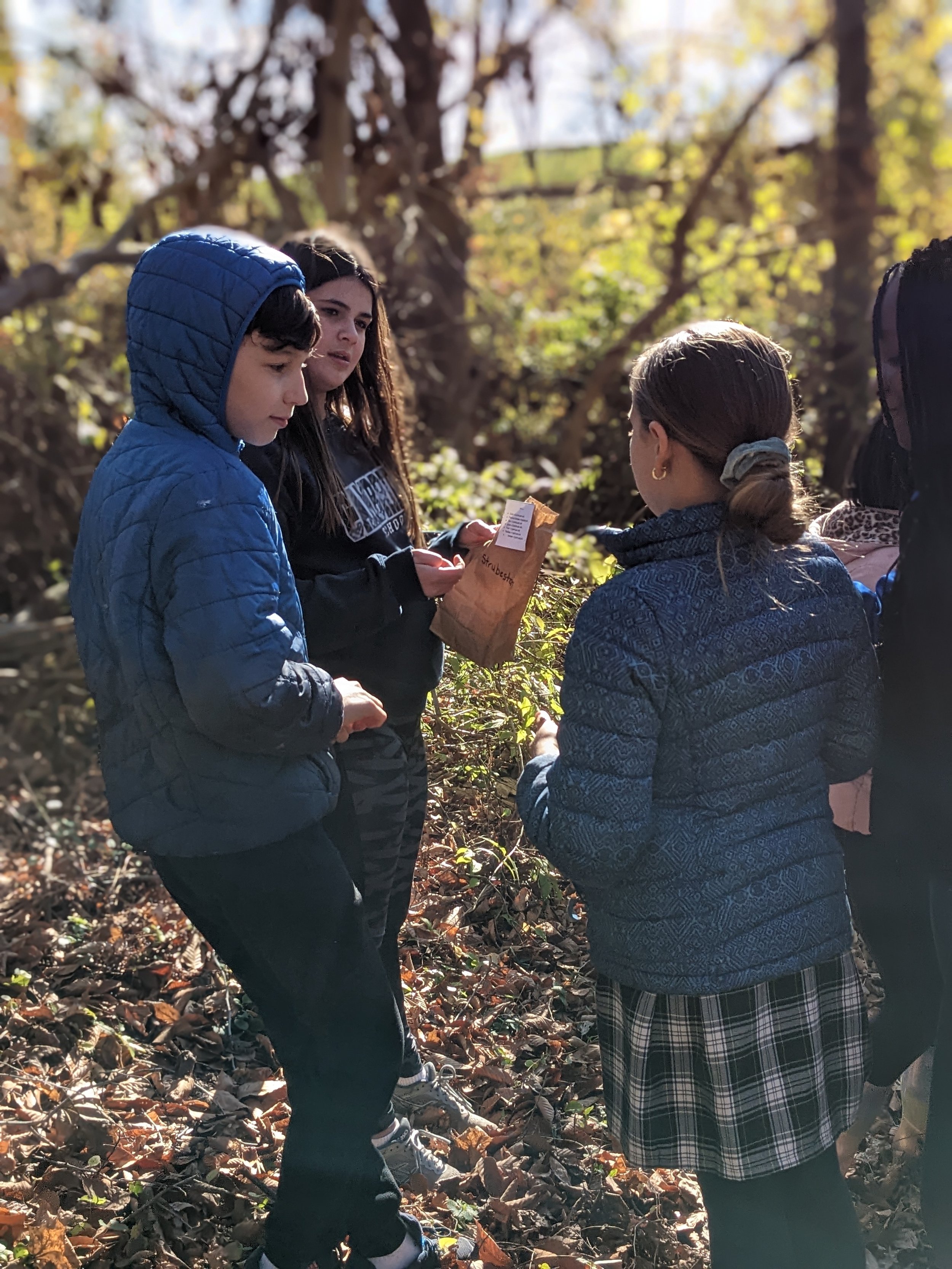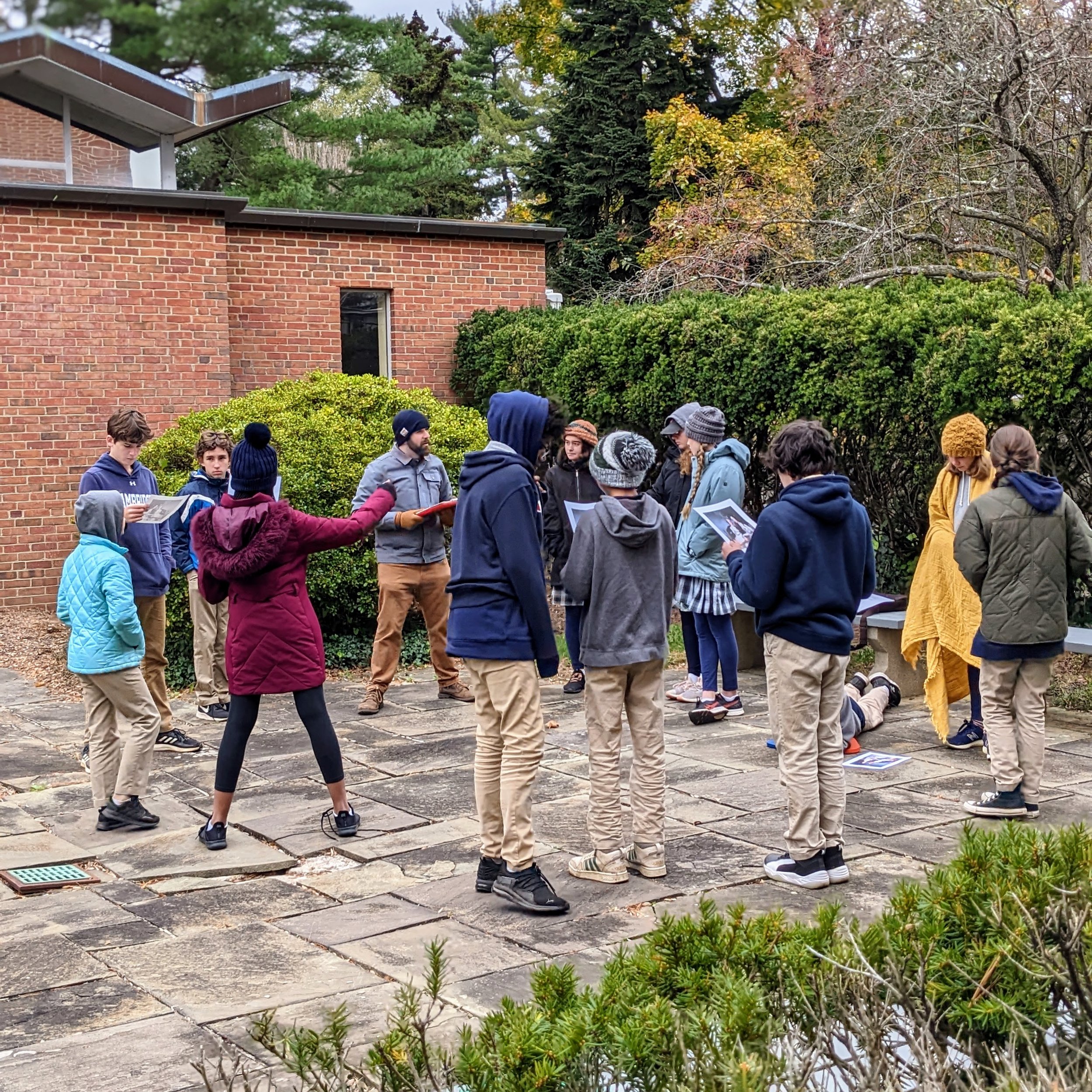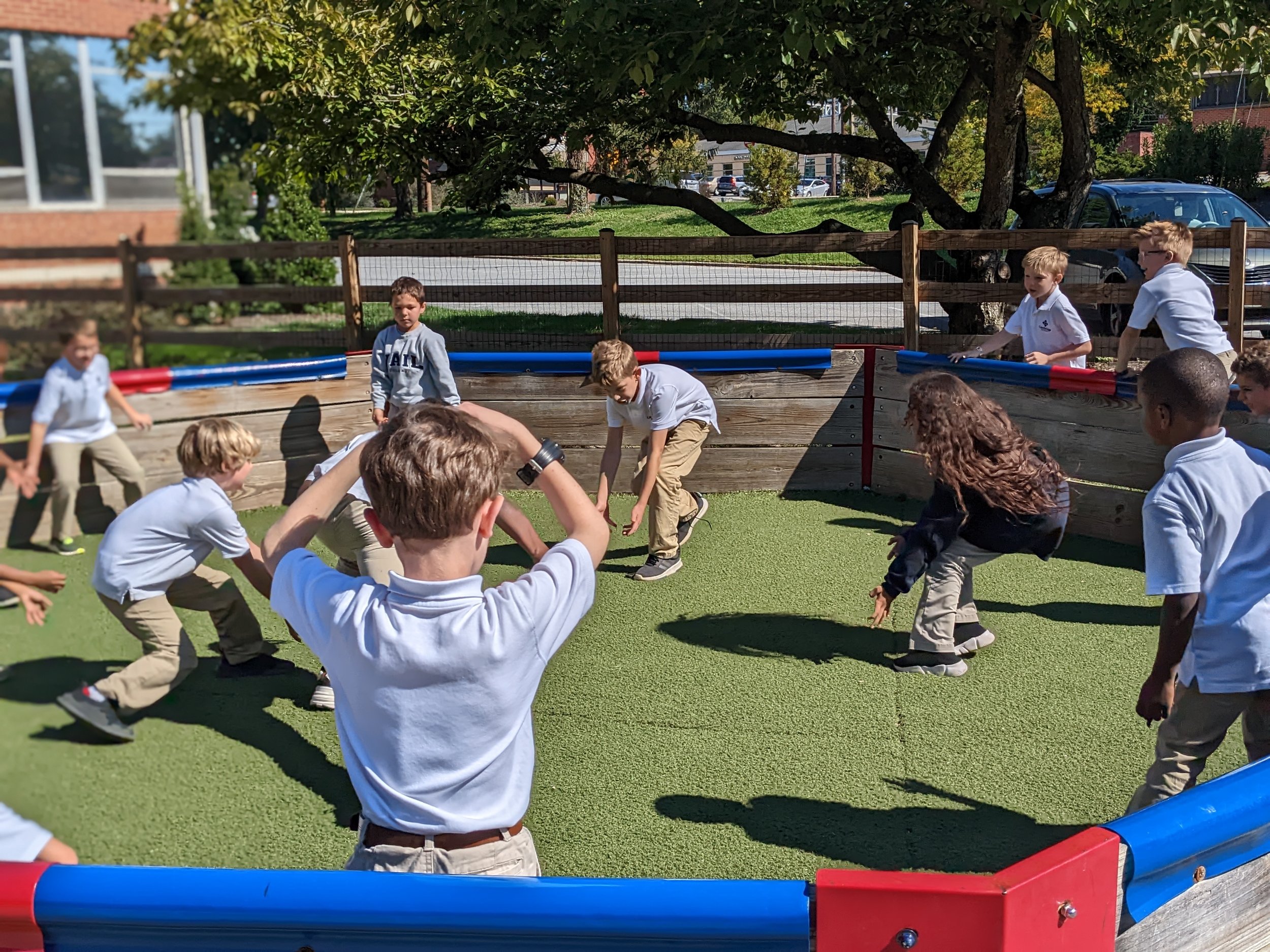The Holy Spirit is our Partner: Growing in Relationships and Restoration
By: Ann Kumpf, Outdoor Education Coordinator
Part 3: Foundational Stones of Cambridge
A partnership is a relationship that involves mutual participation and cooperation, which aptly describes Cambridge’s desire for the Holy Spirit to be our Partner in the educational process. Listening closely to the Holy Spirit is a formational practice, which was embraced by Cambridge’s founders and continues to be an integral habit of the Board of Trustees, administrators, and faculty/staff. The recognition of the Trinity, the relationship between the Father, Son, and Spirit, helps us understand the importance of relationships in our work, as we rely on the Spirit’s transformation of us.
As image-bearers of God, we are created for relationships. In the context of everyday life, those relationships become a fertile ground for spiritual development and restoration. Through everyday problems, we have the opportunity to interact with the Holy Spirit with the goal of becoming transformed people. This is the goal for teachers and students alike at Cambridge.
So, how does this play out at Cambridge on a daily basis?
Answer: In the way we approach relationships in and around the classroom. Many prospective parents often ask what our discipline policy is. This important question is an opening to share that our approach to responding to behavior is what we call restorative practice.
Rooted in the Restorative Justice movement, restorative practice places community (or relationships) as the central value. As opposed to simply punishing wrong-doing, restorative practices serve to prevent harmful behavior and to mend relationships that are broken. This approach fosters connection, rather than merely correction, and is reflective of our value to honor one another as persons created as image bearers. At the same time, it helps us to focus on healing what is broken. As followers of Jesus, we know that mending broken relationships is at the core of the Gospel message.
At Cambridge, through a multi-faceted approach, faculty, staff, and students work together to foster, build, and restore all relationships. In order to be effective guides of restoration, a lot of training and support is given to teachers, so they have the capacity and attunement to engage in the restorative process with students daily.
Here are some ways that the restorative process is woven into our environment:
Relationships between teachers and students - Creating a classroom environment with habits and routines builds predictability and safety for children. Within the classroom, teachers are able to attune to the needs of students and see them as whole persons. Teachers are trained to use a restorative response to student behaviors and to guide students in the process of seeing how their behaviors impact others. (See image below for questions teachers use regularly with students to help them repair relationships.)
Relationships between students - Circle time (in the morning and/or afternoon) provides a chance for students to get to know and appreciate one another through fun daily questions or discussions. Group activities and outdoor time provide opportunities for students to build social skills and foster friendships in both structured and unstructured environments. As challenges arise, as they will, teachers support students by walking them through the restorative process.
Relationships between teachers and parents - Through partnership with parents, we invite parents to help in the classroom and on field trips. Communication is open, and student challenges are discussed with the goal of building community and meeting the educational and social goals of students. Parents know that teachers work with students, in the moment, to settle disputes in a way that restores children with one another.
Building a culture of empathy and connection is a core value of Cambridge. We are also keenly aware of educational neuroscience research that underscores how a positive connection with others is an essential precursor for effective learning and cognitive processing. This positive connection begins by demonstrating to students how Jesus loves. He accepts us where we are and walks with us in the process of transformation. Dallas Willard said it this way, “The presence of the Holy Spirit can always be recognized by the way he moves us toward what Jesus would be and do.”
“As image-bearers of God, we are created for relationships. In the context of everyday life, those relationships become a fertile ground for spiritual development and restoration.”






